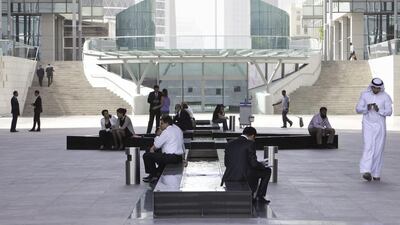The Dubai International Financial Centre (DIFC) has set the ball rolling for the introduction of new rules relating to succession and inheritance matters of non-Muslims owning assets in the emirate.
With the new registry set to launch next month, here Nita Maru, a British qualified solicitor and Managing Partner of TWS Legal Consultants - who was also part of the working group involved in formulating and contributing to the DIFC Wills and Probate Registry rules - explains its role and how it will affect expats in the UAE:
The DIFC will become the first jurisdiction in the region where a non Muslim individual can register a will under the internationally-recognised Common Law principles. Currently, the distribution of assets of a deceased is guided by UAE federal laws such as the Personal Status Law, Civil Transactions Code and by public order.
The background to the rules:
The current dilemma of the contradictory legislation, where inheritance matters are concerned, coupled with the legal uncertainty of expatriate wills and the courts discretion in applying Sharia Law (when they consider it appropriate) means such a move is welcome. To avoid lengthy and costly probate battles at the Dubai Court as well as the risk of estates being contested and the conflicting inheritance laws, many expatriates transfer their assets into offshore structures. Such a shift is common where property is purchased as there is no right of survivorship concept in the UAE (that is property passing onto the surviving joint owner upon the death of the other owner) and this is a serious concern for many investors.
Guardianship issues for those parents that have minor children residing in Dubai is a common fear. And the fixed distribution of assets as per UAE law and the freezing of bank accounts, for example, tend to make expatriates uncomfortable in retaining funds leading to them to transferring funds offshore and out of this jurisdiction. This naturally affects the economic growth and further investment in Dubai and the surrounding Emirates.
Brief details of the new rules:
1. The DIFC Wills and Probate Registry will mark the introduction of a new set of rules relating to succession and inheritance matters for non-Muslims with assets in Dubai.
2. It will provide a mechanism for non-Muslims with assets in Dubai only to pass on their estates according to their wishes.
3. The rules governing the registry will complement existing UAE laws on inheritance for non-Muslims, and provide non-Muslims with the option and right to choose the way in which their estates are distributed.
4. The registry will be within the DIFC jurisdiction and will work with the DIFC Courts for the production of grants and court orders for the distribution of assets. As the grant is issued by the DIFC Court, it will be directly enforceable in Dubai without the need to go through the Dubai Courts.
5. The DIFC will be the first jurisdiction in the MENA region, where non-Muslims can register a will under internationally-recognised common law principles.
The current thought is that the Registry will register the wills of non-Muslims and, once they are informed of someone’s death, will issue the necessary court orders to allow for the distribution of the deceased’s Dubai based assets. This will also include court orders relating to Guardianship with everything carried out in accordance with the registered will.
The DIFC procedure is based upon ‘common law’ principles whereby a testator has freedom to dispose of their estate, rather than being subject to any specific legal rules regarding distribution or a forced heirship regime. Once the Registry is established, a system of precedents will result in an orderly administrative process of a deceased non-Muslim’s estate in Dubai. This, in turn, will provide a greater degree of certainty in the handling of such inheritance cases in the future.
It is hoped that the Registry will be functional and officially open its doors by May 2015. Should you wish to prepare a DIFC will or should you wish to review your existing will in light of the aforementioned developments, it is prudent to seek the advice of a lawyer registered with the Government of Dubai Legal Affairs Department.
business@thenational.ae

